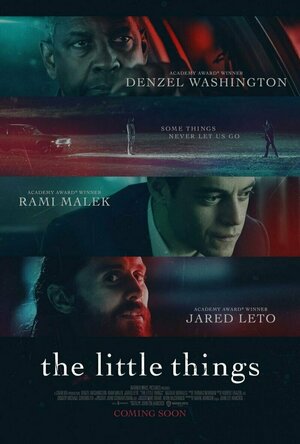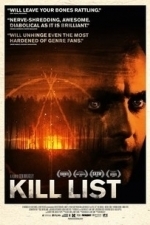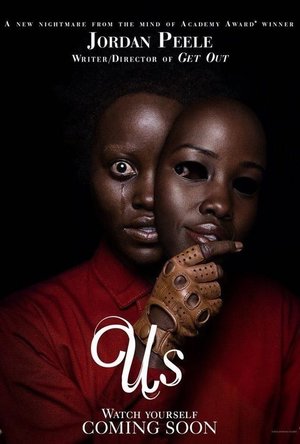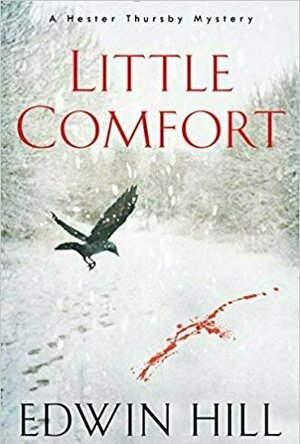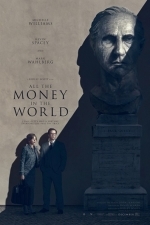Search
Search results
Gareth von Kallenbach (980 KP) rated The Little Things (2021) in Movies
Jan 26, 2021
Academy Award Winners Denzel Washington, Jared Leto, and Remi Malik star in the new thriller “The Little Things” and combine to make very gripping and memorable performances.
The script was reportedly written over thirty years ago by John Lee Hancock who has gone on to write, direct, and produce multiple films of note in the decades since he first created the screenplay.
The film is set in 1990 and involves a cop named Joe Deacon (Denzel Washington), who travels from his small California town to Los Angeles to get information on a suspect.
Joe has a history in L.A as he used to be a homicide detective for the department which combined with his meltdown while obsessing over a murder case has caused him more than a bit of notoriety.
Jim Baxter (Remi Malik) is the hotshot new Detective who has been leading the investigation into a string of unsolved murders. Joe accompanies Jim to a new crime scene and notes some similarities with his unsolved case. Joe takes some personal days and begins to do some legwork on the case and reports his findings to Jim which causes Joe to remember aspects of what drove him to his marital, health, and career issues as he is unable and unwilling to let the case drop.
When a prime suspect no longer fits into the picture; suspicions fall on a crime enthusiast named Albert (Jared Leto) who seems to check all the boxes but is also taking delight in winding up Joe which causes Jim to question if he is a viable suspect or just an oddball who gets off on crimes and winding up the cops but does not actually commit any offenses.
As the delicate dance unfolds between the characters the fact that this is an era before Cell Phones, DNA tests, GPS, and elaborate computer networks helps underscore the plight of the officers. If the film was set in a modern setting much of the suspense and uncertainty of the story and characters would be moot thanks to technology.
As the game of cat and mouse unfolds between the characters Jim learns how a person can become obsessed with a case and Joe attempts to mentor him from the success and failures of his life which includes some gray areas.
Aside from the strong performances and engaging story what makes “The Little Things” work is that it is a film that does not take the Hollywood fallbacks of extended gunfights, car chases, and over the top action scenes. What it does show is real and flawed characters that are doing what they think are right and does not attempt to wrap things up nice and tidy.
The film uses the element of doubt to not only drive the story but the actions of the characters which underscores that an element of uncertainty exists in some investigations and in with the resources available to police at the time; things are not always certain.
The film will appear in cinemas and HBO Max and is a compelling and well-crafted thriller that is not to be missed.
4.5 stars out of 5
The script was reportedly written over thirty years ago by John Lee Hancock who has gone on to write, direct, and produce multiple films of note in the decades since he first created the screenplay.
The film is set in 1990 and involves a cop named Joe Deacon (Denzel Washington), who travels from his small California town to Los Angeles to get information on a suspect.
Joe has a history in L.A as he used to be a homicide detective for the department which combined with his meltdown while obsessing over a murder case has caused him more than a bit of notoriety.
Jim Baxter (Remi Malik) is the hotshot new Detective who has been leading the investigation into a string of unsolved murders. Joe accompanies Jim to a new crime scene and notes some similarities with his unsolved case. Joe takes some personal days and begins to do some legwork on the case and reports his findings to Jim which causes Joe to remember aspects of what drove him to his marital, health, and career issues as he is unable and unwilling to let the case drop.
When a prime suspect no longer fits into the picture; suspicions fall on a crime enthusiast named Albert (Jared Leto) who seems to check all the boxes but is also taking delight in winding up Joe which causes Jim to question if he is a viable suspect or just an oddball who gets off on crimes and winding up the cops but does not actually commit any offenses.
As the delicate dance unfolds between the characters the fact that this is an era before Cell Phones, DNA tests, GPS, and elaborate computer networks helps underscore the plight of the officers. If the film was set in a modern setting much of the suspense and uncertainty of the story and characters would be moot thanks to technology.
As the game of cat and mouse unfolds between the characters Jim learns how a person can become obsessed with a case and Joe attempts to mentor him from the success and failures of his life which includes some gray areas.
Aside from the strong performances and engaging story what makes “The Little Things” work is that it is a film that does not take the Hollywood fallbacks of extended gunfights, car chases, and over the top action scenes. What it does show is real and flawed characters that are doing what they think are right and does not attempt to wrap things up nice and tidy.
The film uses the element of doubt to not only drive the story but the actions of the characters which underscores that an element of uncertainty exists in some investigations and in with the resources available to police at the time; things are not always certain.
The film will appear in cinemas and HBO Max and is a compelling and well-crafted thriller that is not to be missed.
4.5 stars out of 5
Darren (1599 KP) rated Kill List (2012) in Movies
Sep 13, 2019
Characters – Jay is the former hitmen that is trying to move away from the job, one year after his final job he is talked into one more job which will give him enough money to cover the financial problems his family is going through. The job starts simple enough only for it to turn him into a paranoid angry man who is taking everything personally. Shel is Jay’s wife, she is frustrated with the fact he has spent most of their money forcing him to return to the work he was meant to leave behind, always arguing with him even though it is clear the love between the two is strong. Sam is the innocent young child of the two. Gal is the partner and best friend of Jay, he is the one that tries to keep his head on his shoulders, he sees his friend losing his mind and puts him back on track for the most part.
Performances – Neil Maskell in the leading role is great because we see how he makes us feel as unsettled as his character is meant to be through the film. Michael Smiley as the main supporting character and he helps us understand how things needed to become calm through the bad times. MyAnna Buring as the wife is good without getting that moment that standout.
Story – The story follows two hitmen that must take one job which seems simple only to take a dramatic twist along the way. This is a story which starts out on a path which you know the two hitmen are not the nice guys and soon things just get weird with every encounter things start to play out like they have never dealt with before which only grabs the audience to want to know what will happen next to the characters. this gives us an unsettling feeling from start to finish with a conclusion that will leave you jaw-dropped in true surprise with how everything ended up. This is from director Ben Wheatley who has always managed to give his stories a unique feel, this is why people will rave over this director for years.
Crime/Horror – This movie takes us into the crime world in which Jay and Gal operate in as hitmen, we get to see how they go about this job, conduct kills, clean ups and get on with life. The horror comes from early hints in the film before showing us the true nature to everything going on which will become horrifying,
Settings – The film shows us the settings used by the hitmen to be everyday locations where the predators they believe they are killing operate without anyone knowing. This helps us understand the dangers of not knowing everything about our neighbours.
Scene of the Movie – That ending.
That Moment That Annoyed Me – Jay isn’t the most likeable character.
Final Thoughts – This is easily one of the most shocking and unsettling films you will see, it has suspense throughout and an ending you will NEVER forget.
Overall: Suspenseful treat.
Performances – Neil Maskell in the leading role is great because we see how he makes us feel as unsettled as his character is meant to be through the film. Michael Smiley as the main supporting character and he helps us understand how things needed to become calm through the bad times. MyAnna Buring as the wife is good without getting that moment that standout.
Story – The story follows two hitmen that must take one job which seems simple only to take a dramatic twist along the way. This is a story which starts out on a path which you know the two hitmen are not the nice guys and soon things just get weird with every encounter things start to play out like they have never dealt with before which only grabs the audience to want to know what will happen next to the characters. this gives us an unsettling feeling from start to finish with a conclusion that will leave you jaw-dropped in true surprise with how everything ended up. This is from director Ben Wheatley who has always managed to give his stories a unique feel, this is why people will rave over this director for years.
Crime/Horror – This movie takes us into the crime world in which Jay and Gal operate in as hitmen, we get to see how they go about this job, conduct kills, clean ups and get on with life. The horror comes from early hints in the film before showing us the true nature to everything going on which will become horrifying,
Settings – The film shows us the settings used by the hitmen to be everyday locations where the predators they believe they are killing operate without anyone knowing. This helps us understand the dangers of not knowing everything about our neighbours.
Scene of the Movie – That ending.
That Moment That Annoyed Me – Jay isn’t the most likeable character.
Final Thoughts – This is easily one of the most shocking and unsettling films you will see, it has suspense throughout and an ending you will NEVER forget.
Overall: Suspenseful treat.
Darren (1599 KP) rated El Dorado (1967) in Movies
Sep 13, 2019
Characters – Jay is the former hitmen that is trying to move away from the job, one year after his final job he is talked into one more job which will give him enough money to cover the financial problems his family is going through. The job starts simple enough only for it to turn him into a paranoid angry man who is taking everything personally. Shel is Jay’s wife, she is frustrated with the fact he has spent most of their money forcing him to return to the work he was meant to leave behind, always arguing with him even though it is clear the love between the two is strong. Sam is the innocent young child of the two. Gal is the partner and best friend of Jay, he is the one that tries to keep his head on his shoulders, he sees his friend losing his mind and puts him back on track for the most part.
Performances – Neil Maskell in the leading role is great because we see how he makes us feel as unsettled as his character is meant to be through the film. Michael Smiley as the main supporting character and he helps us understand how things needed to become calm through the bad times. MyAnna Buring as the wife is good without getting that moment that standout.
Story – The story follows two hitmen that must take one job which seems simple only to take a dramatic twist along the way. This is a story which starts out on a path which you know the two hitmen are not the nice guys and soon things just get weird with every encounter things start to play out like they have never dealt with before which only grabs the audience to want to know what will happen next to the characters. this gives us an unsettling feeling from start to finish with a conclusion that will leave you jaw-dropped in true surprise with how everything ended up. This is from director Ben Wheatley who has always managed to give his stories a unique feel, this is why people will rave over this director for years.
Crime/Horror – This movie takes us into the crime world in which Jay and Gal operate in as hitmen, we get to see how they go about this job, conduct kills, clean ups and get on with life. The horror comes from early hints in the film before showing us the true nature to everything going on which will become horrifying,
Settings – The film shows us the settings used by the hitmen to be everyday locations where the predators they believe they are killing operate without anyone knowing. This helps us understand the dangers of not knowing everything about our neighbours.
Scene of the Movie – That ending.
That Moment That Annoyed Me – Jay isn’t the most likeable character.
Final Thoughts – This is easily one of the most shocking and unsettling films you will see, it has suspense throughout and an ending you will NEVER forget.
Overall: Suspenseful treat.
Performances – Neil Maskell in the leading role is great because we see how he makes us feel as unsettled as his character is meant to be through the film. Michael Smiley as the main supporting character and he helps us understand how things needed to become calm through the bad times. MyAnna Buring as the wife is good without getting that moment that standout.
Story – The story follows two hitmen that must take one job which seems simple only to take a dramatic twist along the way. This is a story which starts out on a path which you know the two hitmen are not the nice guys and soon things just get weird with every encounter things start to play out like they have never dealt with before which only grabs the audience to want to know what will happen next to the characters. this gives us an unsettling feeling from start to finish with a conclusion that will leave you jaw-dropped in true surprise with how everything ended up. This is from director Ben Wheatley who has always managed to give his stories a unique feel, this is why people will rave over this director for years.
Crime/Horror – This movie takes us into the crime world in which Jay and Gal operate in as hitmen, we get to see how they go about this job, conduct kills, clean ups and get on with life. The horror comes from early hints in the film before showing us the true nature to everything going on which will become horrifying,
Settings – The film shows us the settings used by the hitmen to be everyday locations where the predators they believe they are killing operate without anyone knowing. This helps us understand the dangers of not knowing everything about our neighbours.
Scene of the Movie – That ending.
That Moment That Annoyed Me – Jay isn’t the most likeable character.
Final Thoughts – This is easily one of the most shocking and unsettling films you will see, it has suspense throughout and an ending you will NEVER forget.
Overall: Suspenseful treat.
Darren (1599 KP) rated The Girl in the Spider's Web (2018) in Movies
Oct 2, 2019
Characters – Lisbeth Salander is the famous hacker that will stand up against any man that is causing a woman abuse, she will leave her brand on them. She is called for difficult hacking jobs, which sees her take something from the Americans, this makes her a wanted suspect in Sweden and her on the run looking for answers to clear her name. Mikael Blomkvist is still the only person that Lisbeth will trust, he tries to operate from a distant and investigates the trust behind what is happening. Ed Needham is the American that has his system hacked, a government man, he heads to Sweden to get it back and finds nothing but barriers from the Swedish government. Camilla Salander is the long lost sister of Lisbeth, she thought to be dead, but now she is involved in a criminal gang known as The Spiders, targeting Lisbeth for what she wants.
Performances – Claire Foy does feel mis-cast in this role, she doesn’t seem to have a tough enough look to make this character effect as the two previous stars. Sverrir Gudnason had large shoes to fill and he doesn’t do a strong enough job in the Mikael role, while Sylvia Hoeks does what she can with her role without being anything overly special, while LaKeith Stanfield doesn’t seem to feel like the character he is meant to be playing.
Story – The story here is the fourth story in the Dragon Tattoo world, the second in English and is the first not written by the original author. We follow Lisbeth who once again finds herself needing to take on secret organisation that what something that could put the world in danger and this time it becomes more personal, with her sister being the enemy. This story does feel like it has borrowed from many other films and while it still puts Lisbeth is an anti-hero role, we only seem to find ourselves in one direction where Lisbeth is always one step ahead of everything happening, despite the fact we get to see just how twisted the Spiders are, it paints one image of them only to leave us facing a different softer enemy.
Action/Crime – The action was pretty much all given away in the trailer, we have the motorbike chase across the ice, the car chases and shoot outs, each feels very similar and doesn’t have the suspense required in a thriller.
Settings – The film does try to bring everything back to Lisbeth’s backstory with the settings showing the off the grid life she current lives compared to the one she could have lived, the snowy roads add a little to the chases, but not that much overall.
Scene of the Movie – Ice lake escape.
That Moment That Annoyed Me – The Spider’s not hinting at wanting to do to what they did to the guy without a nose, to the new Lisbeth group.
Final Thoughts – This does feel like a cash grab on a franchise that has never taken off on the American side of things, we get everything scaled back leaving us feeling disappointed by the end of the film.
Overall: No thrills to be seen here.
Performances – Claire Foy does feel mis-cast in this role, she doesn’t seem to have a tough enough look to make this character effect as the two previous stars. Sverrir Gudnason had large shoes to fill and he doesn’t do a strong enough job in the Mikael role, while Sylvia Hoeks does what she can with her role without being anything overly special, while LaKeith Stanfield doesn’t seem to feel like the character he is meant to be playing.
Story – The story here is the fourth story in the Dragon Tattoo world, the second in English and is the first not written by the original author. We follow Lisbeth who once again finds herself needing to take on secret organisation that what something that could put the world in danger and this time it becomes more personal, with her sister being the enemy. This story does feel like it has borrowed from many other films and while it still puts Lisbeth is an anti-hero role, we only seem to find ourselves in one direction where Lisbeth is always one step ahead of everything happening, despite the fact we get to see just how twisted the Spiders are, it paints one image of them only to leave us facing a different softer enemy.
Action/Crime – The action was pretty much all given away in the trailer, we have the motorbike chase across the ice, the car chases and shoot outs, each feels very similar and doesn’t have the suspense required in a thriller.
Settings – The film does try to bring everything back to Lisbeth’s backstory with the settings showing the off the grid life she current lives compared to the one she could have lived, the snowy roads add a little to the chases, but not that much overall.
Scene of the Movie – Ice lake escape.
That Moment That Annoyed Me – The Spider’s not hinting at wanting to do to what they did to the guy without a nose, to the new Lisbeth group.
Final Thoughts – This does feel like a cash grab on a franchise that has never taken off on the American side of things, we get everything scaled back leaving us feeling disappointed by the end of the film.
Overall: No thrills to be seen here.
Andy K (10823 KP) rated Us (2019) in Movies
Sep 21, 2019
I wish I would've liked it more.
A married couple decide to take a vacation at a beach house. Their relaxation bliss is soon interrupted by four strangers who actually turn out to be evil counterparts or "doppelgangers" of the family who have come to torment them.
Each counterpart goes after their "normal" version in various ways including on the used power boat they had just purchased or having a conversation while sitting in their living room. Not known is why or who they are and what are their intentions. They family tried to take refuge at their neighbors home only to discover they met with their demise courtesy of their own set of demons hunting them.
The family eventually reunites and tried to escape, but are pursued. Several confrontations ensue at the beach where some carnage is executed by the demons and the family against each other.
Then the twist, kind of. A scene at the start of the film when the mother had a traumatic experience as a child getting separated from her family and finding her way into a hall of mirrors and seeing her other self as a child is explained. Truths you thought were truths end of being a lie or a different situation than you originally thought.
In trying to figure out a type for this film it is rather difficult. It is not particularly scary or gory. I suppose suspense/thriller would suit it best, but I'm not sure that is what writer/director Jordan Peele was going for. I liked the visuals, the acting, the musical score and some of the ideas, but not really the execution or the screenplay.
It had some jokes like the "Home Alone" reference and other scenes where the parents and children are together making fun of each other which were just not funny and took away from the tension.
My main problem with the script was the fact that the characters' actions were mostly not appropriate. No one seemed to be bothered by the fact that these other human/non humans existed and when family members, even children, begin performing heinous actions, they don't even seem to blink an eye. They also have to write in the scene where they try and call the police and they are unavailable.
I feel like there was a really great film in there somewhere, they just didn't get it quite right. The middle section dragged somewhat and the ending was interesting but didn't hold water the more you thought about it. I have no issue with a vague ending as long as it leaves you thinking and drawing your own conclusions; however, this film was vague not in a good way I think just due to a mediocre screenplay or maybe bad editing.
Peele certainly had his own big shoes t fill after getting a Best Picture nomination for his first film, Get Out. The box office and critical acclaim were paramount on that one.
Hopefully, he will rebound from this film and create something truly unique and interesting for his next effort. We certainly need more great horror writer/directors out there!
Each counterpart goes after their "normal" version in various ways including on the used power boat they had just purchased or having a conversation while sitting in their living room. Not known is why or who they are and what are their intentions. They family tried to take refuge at their neighbors home only to discover they met with their demise courtesy of their own set of demons hunting them.
The family eventually reunites and tried to escape, but are pursued. Several confrontations ensue at the beach where some carnage is executed by the demons and the family against each other.
Then the twist, kind of. A scene at the start of the film when the mother had a traumatic experience as a child getting separated from her family and finding her way into a hall of mirrors and seeing her other self as a child is explained. Truths you thought were truths end of being a lie or a different situation than you originally thought.
In trying to figure out a type for this film it is rather difficult. It is not particularly scary or gory. I suppose suspense/thriller would suit it best, but I'm not sure that is what writer/director Jordan Peele was going for. I liked the visuals, the acting, the musical score and some of the ideas, but not really the execution or the screenplay.
It had some jokes like the "Home Alone" reference and other scenes where the parents and children are together making fun of each other which were just not funny and took away from the tension.
My main problem with the script was the fact that the characters' actions were mostly not appropriate. No one seemed to be bothered by the fact that these other human/non humans existed and when family members, even children, begin performing heinous actions, they don't even seem to blink an eye. They also have to write in the scene where they try and call the police and they are unavailable.
I feel like there was a really great film in there somewhere, they just didn't get it quite right. The middle section dragged somewhat and the ending was interesting but didn't hold water the more you thought about it. I have no issue with a vague ending as long as it leaves you thinking and drawing your own conclusions; however, this film was vague not in a good way I think just due to a mediocre screenplay or maybe bad editing.
Peele certainly had his own big shoes t fill after getting a Best Picture nomination for his first film, Get Out. The box office and critical acclaim were paramount on that one.
Hopefully, he will rebound from this film and create something truly unique and interesting for his next effort. We certainly need more great horror writer/directors out there!
Kristy H (1252 KP) rated Little Comfort in Books
Oct 14, 2019
Hester Thursby is a Harvard research librarian with a knack for finding things. She's good at research, so when Lila Blaine comes to her, asking for help finding her long-lost brother, Sam, Hester figures it will be another easy job in what has become a side-business for her. Hester has some extra time, as she's on leave from her job as she and her partner, Morgan, try to navigate life with his niece, Kate, whom they are caring for since her own mom has disappeared. But finding Sam--who may have left with his friend Gabe, a foster kid, isn't as easy as it seems. Sam has no wish to be found. He's now a con man who cozies up to the rich and his latest mark, Wendy Richards, a Boston socialite, has the ability to give him all he's ever dreamed of: wealth, status, security, and more. When Hester's investigation threatens this, there's no limit to what Sam and Gabe may do.
This was an intriguing mystery that definitely held my interest. Somehow it was darker and grittier than I expected (sorry, I probably wasn't giving librarians enough credit here), but that certainly didn't diminish my interest at all. The opposite really. Hester is a fascinating character, to say the least. A lot of toughness, smarts, and dedication wrapped into a tiny package (she's 4'9"). She's dealing with a lot, taking on care of three-year-old Kate and a leave of absence, but that doesn't stop her from tracking down subjects and tangling with whomever she meets. She, Kate, and their basset hound, Waffles, are on the case.
The book is told from multiple POV, so we hear from a whole host of characters, including Gabe and Sam. Hill is a wonderful storyteller, and really puts you in the shoes of his characters. And boy, are some of these folks creepy. Terrible things happen in this story, and some of these people are downright despicable. Yet, he still captures the intense longing of Gabe, a foster child, and shows how Hester, who also had a tough childhood, can identify with him. Each character is an individual with their own voice. It's incredibly easy to get caught up in the tale of Gabe, Sam, and Lila and their past at Little Comfort, a lake house, plus Hester, Morgan, and Kate (oh sweet little Kate). I read the second half of the book in one determined setting, fascinated to find out what was going to happen. It's not edge-of-your-seat suspense, per se, but it's wonderful characterization and dark, mesmerizing plotting. So many secrets, so many lies to unravel.
Overall, while this one was more complicated and edgier than I was planning going into it, that was fine with me. Hester is a great character, and I'm really excited that this is a series. Hill is an excellent writer, who knows how to hold my interest with a well-paced thriller. I'm quite looking forward to seeing what Hester is up to next.
This was an intriguing mystery that definitely held my interest. Somehow it was darker and grittier than I expected (sorry, I probably wasn't giving librarians enough credit here), but that certainly didn't diminish my interest at all. The opposite really. Hester is a fascinating character, to say the least. A lot of toughness, smarts, and dedication wrapped into a tiny package (she's 4'9"). She's dealing with a lot, taking on care of three-year-old Kate and a leave of absence, but that doesn't stop her from tracking down subjects and tangling with whomever she meets. She, Kate, and their basset hound, Waffles, are on the case.
The book is told from multiple POV, so we hear from a whole host of characters, including Gabe and Sam. Hill is a wonderful storyteller, and really puts you in the shoes of his characters. And boy, are some of these folks creepy. Terrible things happen in this story, and some of these people are downright despicable. Yet, he still captures the intense longing of Gabe, a foster child, and shows how Hester, who also had a tough childhood, can identify with him. Each character is an individual with their own voice. It's incredibly easy to get caught up in the tale of Gabe, Sam, and Lila and their past at Little Comfort, a lake house, plus Hester, Morgan, and Kate (oh sweet little Kate). I read the second half of the book in one determined setting, fascinated to find out what was going to happen. It's not edge-of-your-seat suspense, per se, but it's wonderful characterization and dark, mesmerizing plotting. So many secrets, so many lies to unravel.
Overall, while this one was more complicated and edgier than I was planning going into it, that was fine with me. Hester is a great character, and I'm really excited that this is a series. Hill is an excellent writer, who knows how to hold my interest with a well-paced thriller. I'm quite looking forward to seeing what Hester is up to next.
Lottie disney bookworm (1056 KP) rated The Odd Sisters: A Villains Novel (Villains #6) in Books
May 16, 2020
The Odd Sisters is the latest addition to the Disney Villains collection written by Serena Valentino. In truth I read this as soon as it came out but I have been so slow with my reviews that I am now looking forward to the next instalment this summer which focuses on the formidable Cruella De Vil.
As you may expect, the Odd Sisters focuses on the three witches whom we have come to recognise from every novel in the villain’s collection. When we left the sisters, they were trapped in the dreamscape; punished by Circe for the roles they had played in creating and revelling in the misfortune of others. This novel leads directly on from ‘Mother Knows Best’, with Circe scouring journals alongside Snow, revealing more and more of the story behind the sisters and their madness.
This is the one review of Serena’s novels that I have really struggled to write. Not because the book is not good! The story itself ties up all the loose ends from ‘Mother Knows Best’ but still leaves room for character development in the form of Tulip and Popinjay who have embarked upon their own adventure: I am sure it is not the last we will hear from them.
My struggles lie in not spoiling the story for a potential reader. This is one story which you just have to experience and read in the correct order! There is an established order for a reason people! Serena Valentino does not write and release these books on a whim- you must pay attention!
A unique characteristic of this novel is the addition of illustrations. The cover art for the series of villain tales is arguably iconic, yet, this is the first book which has included internal illustrations. These illustrations are beautiful as standalone drawings but they also bring a level of humanity to the Odd Sisters: quite apt, as this is the story which explains how they came to be so inhuman in their behaviour and values.
The inclusion of illustrations also allows the seamless addition of the sisters’ journal which eager readers have fallen on and devoured for clues of future villain tales. Later Serena Valentino herself (@blackbirdpirate) would reveal on Instagram that one fan had deduced these clues perfectly, leading us to expect upcoming tales from the likes of Lady Tremaine, Hades and the Shadowman.
‘The Odd Sisters’, although obviously centering around the three witches, seems to bend to Snow White as the main character in the tale. Snow’s journey concludes in this novel, finally allowing her to end her-frankly unhealthy- relationship with her stepmother. It also transpires that the odd sisters’ journey into madness began with Snow…but you will have to read the book to find out how.
Despite being significantly different from the previous villain tales, Valentino continues to keep us gripped with this almost cathartic novel. In tying up the loose ends such as the significance of the teacups (that has been bugging me for ages!), Valentino is able to build suspense in Circe’s journey and focus on dropping teasers for where the books will lead next. I for one, cannot wait to find out.
As you may expect, the Odd Sisters focuses on the three witches whom we have come to recognise from every novel in the villain’s collection. When we left the sisters, they were trapped in the dreamscape; punished by Circe for the roles they had played in creating and revelling in the misfortune of others. This novel leads directly on from ‘Mother Knows Best’, with Circe scouring journals alongside Snow, revealing more and more of the story behind the sisters and their madness.
This is the one review of Serena’s novels that I have really struggled to write. Not because the book is not good! The story itself ties up all the loose ends from ‘Mother Knows Best’ but still leaves room for character development in the form of Tulip and Popinjay who have embarked upon their own adventure: I am sure it is not the last we will hear from them.
My struggles lie in not spoiling the story for a potential reader. This is one story which you just have to experience and read in the correct order! There is an established order for a reason people! Serena Valentino does not write and release these books on a whim- you must pay attention!
A unique characteristic of this novel is the addition of illustrations. The cover art for the series of villain tales is arguably iconic, yet, this is the first book which has included internal illustrations. These illustrations are beautiful as standalone drawings but they also bring a level of humanity to the Odd Sisters: quite apt, as this is the story which explains how they came to be so inhuman in their behaviour and values.
The inclusion of illustrations also allows the seamless addition of the sisters’ journal which eager readers have fallen on and devoured for clues of future villain tales. Later Serena Valentino herself (@blackbirdpirate) would reveal on Instagram that one fan had deduced these clues perfectly, leading us to expect upcoming tales from the likes of Lady Tremaine, Hades and the Shadowman.
‘The Odd Sisters’, although obviously centering around the three witches, seems to bend to Snow White as the main character in the tale. Snow’s journey concludes in this novel, finally allowing her to end her-frankly unhealthy- relationship with her stepmother. It also transpires that the odd sisters’ journey into madness began with Snow…but you will have to read the book to find out how.
Despite being significantly different from the previous villain tales, Valentino continues to keep us gripped with this almost cathartic novel. In tying up the loose ends such as the significance of the teacups (that has been bugging me for ages!), Valentino is able to build suspense in Circe’s journey and focus on dropping teasers for where the books will lead next. I for one, cannot wait to find out.
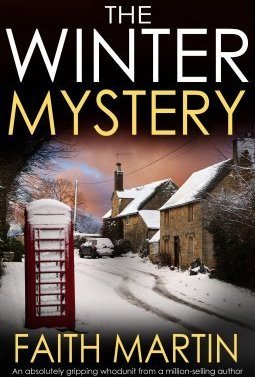
The Winter Mystery
Book
THE WINTER MYSTERY by Faith Martin Discover a new series of whodunits by million-selling author...
Contemporary Fiction Crime Mystery Whodunit
Kristy H (1252 KP) rated Gone for Good in Books
Aug 26, 2021
An excellent mystery where a cold case intersects with a new murder
In the 1990s, the Lovelorn Killer killed seven women and disappeared. The last known victim was Katherine Duffy, the wife of a police officer, who was killed on Halloween. After twenty years, many wonder if he's gone for good. But a group of amateur online sleuths, known as the Grave Diggers, don't think that. They take on cold cases and investigate them. One of these Diggers is Grace Harper, a grocery store worker. Grace is sure the Lovelorn Killer is out there, blending into the same neighborhoods he hunted in. Detective Annalisa Vega's father--also a cop--was partnered with Katie Duffy's husband back in the day. Her murder was a defining moment in Annalisa's life. When Annalisa is called to the scene of Grace's murder and realizes she was killed in a similar manner to the Lovelorn Killer, she wonders if the killer is back. Investigating will mean dredging up Annalisa's childhood memories and giving everything she has to catch a murderer.
"With each passing year, the Lovelorn Killer recedes into history and people shrug at the mention of his name. Looks like he's gone for good."
This is an excellent mystery--honestly no surprise when it's by Schaffhausen. I love her Ellery/Reed series, and I'm excited that there's a new series from her. This is a dark read and Annalisa's personal ties to the case and investigation only strengthen this book. It's wonderful reading a story with a strong female detective (and a female boss). Annalisa is a new detective, struggling with the fact that she must work with her ex-husband, Nick Carelli, the established detective on the force. But she doesn't let that, or anything, stop her. Schaffhausen is so good at writing a police procedural; she writes about the processes and force dynamics so well. You feel a part of the investigation and Annalisa's police family superbly. Same with the city of Chicago. She captures the city perfectly. As someone with Chicago ties, this book is so Chicago. I cannot wait for my parents, who grew up in the Chicago suburbs, to read it.
Told from Annalisa's perspective and interspersed with excerpts from Grace's journal, GONE FOR GOOD is tense and crackling with suspense. It's a fast moving read that keeps you guessing from the very beginning, which opens with Grace's death. Yet Grace always feels like another living character in the book, and she's integral to the plot. This is truly a dark read, with a lot of death and murder, and a "bad guy" who is quite bad. I'm always impressed at how Schaffhausen can write stories that permeate with evil and tension.
Overall, I loved everything about this book. The unification of old and new cases and way the Internet sleuths added to the cases. How Annalisa's personal life intertwined with the investigation. GOOD is well-written and keeps you guessing until the very end. I'm looking forward to the next book in the series. 4.5 stars.
I received a copy of this book from Minotaur Books and Netgalley in return for an unbiased review.
"With each passing year, the Lovelorn Killer recedes into history and people shrug at the mention of his name. Looks like he's gone for good."
This is an excellent mystery--honestly no surprise when it's by Schaffhausen. I love her Ellery/Reed series, and I'm excited that there's a new series from her. This is a dark read and Annalisa's personal ties to the case and investigation only strengthen this book. It's wonderful reading a story with a strong female detective (and a female boss). Annalisa is a new detective, struggling with the fact that she must work with her ex-husband, Nick Carelli, the established detective on the force. But she doesn't let that, or anything, stop her. Schaffhausen is so good at writing a police procedural; she writes about the processes and force dynamics so well. You feel a part of the investigation and Annalisa's police family superbly. Same with the city of Chicago. She captures the city perfectly. As someone with Chicago ties, this book is so Chicago. I cannot wait for my parents, who grew up in the Chicago suburbs, to read it.
Told from Annalisa's perspective and interspersed with excerpts from Grace's journal, GONE FOR GOOD is tense and crackling with suspense. It's a fast moving read that keeps you guessing from the very beginning, which opens with Grace's death. Yet Grace always feels like another living character in the book, and she's integral to the plot. This is truly a dark read, with a lot of death and murder, and a "bad guy" who is quite bad. I'm always impressed at how Schaffhausen can write stories that permeate with evil and tension.
Overall, I loved everything about this book. The unification of old and new cases and way the Internet sleuths added to the cases. How Annalisa's personal life intertwined with the investigation. GOOD is well-written and keeps you guessing until the very end. I'm looking forward to the next book in the series. 4.5 stars.
I received a copy of this book from Minotaur Books and Netgalley in return for an unbiased review.
Bob Mann (459 KP) rated All the Money in the World (2017) in Movies
Sep 29, 2021
You can’t take it with you.
The big talking point of this Ridley Scott film is not of course the film itself but the fact that the disgraced Kevin Spacey (“Baby Driver“) was ‘airbrushed’ out of the movie, replaced by the legend that is Christopher Plummer. With that background, and the fact that the re-shoot only took 9 days (NINE DAYS!!!!), I must admit to having been a tad scornful when Plummer was nominated for a Best Supporting Actor Oscar. “Oh” I thought “…it’s Judi Dench’s minimalistic performance in ‘Shakespeare In Love’ all over again”.
But actually on watching the film I take it all back. Plummer’s role is not, like Dench’s, a mere eight minutes of screen time, but extensive and pivotal. Not only was his nomination richly deserved (his performance is cold, eerie and magnificent!) but Ridley Scott deserved an award for getting so much great footage in the can in such a short space of time.
The film tells the true story of the feckless John Paul Getty III (Charlie Plummer, no relation), grandson to the richest man in the world John Paul Getty I. While in the Piazza Farnese in Rome, JPGIII is kidnapped and a $17 million reward is sought for his release. Whilst claiming to love his offspring, the tycoon is basically a ‘tight git’ and the film concerns the battle of the young heir’s mother Gail (Michelle Williams, “Manchester By The Sea”; “The Greatest Showman”) to persuade JPG1 and his right-hand negotiator Fletcher Chase (Mark Wahlberg, “Patriot’s Day”, “Deep Water Horizon“) to shake the money tree* and get JPGIII released.
*To be fair, JPGIII hasn’t exactly helped his case as it emerges he had previously joked about getting himself kidnapped to get his grandfather’s ransom money!
As I didn’t remember the historical outcome of this, I was in a suitable amount of suspense as to where it would go. It is clear though, from the wiki version of the story, that the ending was significantly ‘sexed-up’ for the movie.
Ridley Scott sensibly balances the views of the Getty’s with the views of the kidnappers, with a semi-sympathetic Italian (Romain Duris) being the focus of those scenes in rural Calabria.
But it’s the scenes with Plummer that really engage. The man as portrayed is an enigma, eccentrically washing his own clothes to save a few pennies and always (ALWAYS) trying to get 20% more on even the most personal of decisions. It makes me really intrigued to see Spacey’s portrayal now… I wonder if the alternate cut might make it onto the Blu-ray? I actually think though that Plummer was the better choice for this: I could see Spacey bringing far too much of Frank Underwood to the role.
Elsewhere in the cast, I think Michelle Williams and Mark Wahlberg are both solid without ever being spectacular and it’s nice to see the talented Andrew Buchan (“The Mercy“; “Broadchurch”) in a more memorable big screen outing as JPG2: his drug-addled son (and JPG3’s father).
Overall, it’s an interesting watch and had me sufficiently engaged to want to watch it again. But without Plummer’s role it wouldn’t really amount to nearly as much.
But actually on watching the film I take it all back. Plummer’s role is not, like Dench’s, a mere eight minutes of screen time, but extensive and pivotal. Not only was his nomination richly deserved (his performance is cold, eerie and magnificent!) but Ridley Scott deserved an award for getting so much great footage in the can in such a short space of time.
The film tells the true story of the feckless John Paul Getty III (Charlie Plummer, no relation), grandson to the richest man in the world John Paul Getty I. While in the Piazza Farnese in Rome, JPGIII is kidnapped and a $17 million reward is sought for his release. Whilst claiming to love his offspring, the tycoon is basically a ‘tight git’ and the film concerns the battle of the young heir’s mother Gail (Michelle Williams, “Manchester By The Sea”; “The Greatest Showman”) to persuade JPG1 and his right-hand negotiator Fletcher Chase (Mark Wahlberg, “Patriot’s Day”, “Deep Water Horizon“) to shake the money tree* and get JPGIII released.
*To be fair, JPGIII hasn’t exactly helped his case as it emerges he had previously joked about getting himself kidnapped to get his grandfather’s ransom money!
As I didn’t remember the historical outcome of this, I was in a suitable amount of suspense as to where it would go. It is clear though, from the wiki version of the story, that the ending was significantly ‘sexed-up’ for the movie.
Ridley Scott sensibly balances the views of the Getty’s with the views of the kidnappers, with a semi-sympathetic Italian (Romain Duris) being the focus of those scenes in rural Calabria.
But it’s the scenes with Plummer that really engage. The man as portrayed is an enigma, eccentrically washing his own clothes to save a few pennies and always (ALWAYS) trying to get 20% more on even the most personal of decisions. It makes me really intrigued to see Spacey’s portrayal now… I wonder if the alternate cut might make it onto the Blu-ray? I actually think though that Plummer was the better choice for this: I could see Spacey bringing far too much of Frank Underwood to the role.
Elsewhere in the cast, I think Michelle Williams and Mark Wahlberg are both solid without ever being spectacular and it’s nice to see the talented Andrew Buchan (“The Mercy“; “Broadchurch”) in a more memorable big screen outing as JPG2: his drug-addled son (and JPG3’s father).
Overall, it’s an interesting watch and had me sufficiently engaged to want to watch it again. But without Plummer’s role it wouldn’t really amount to nearly as much.
